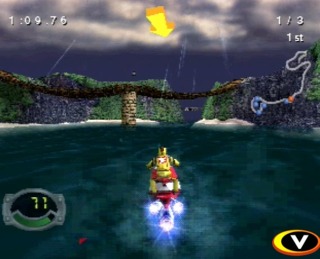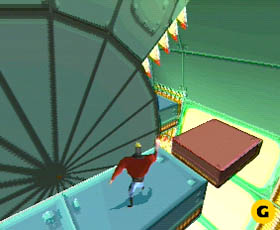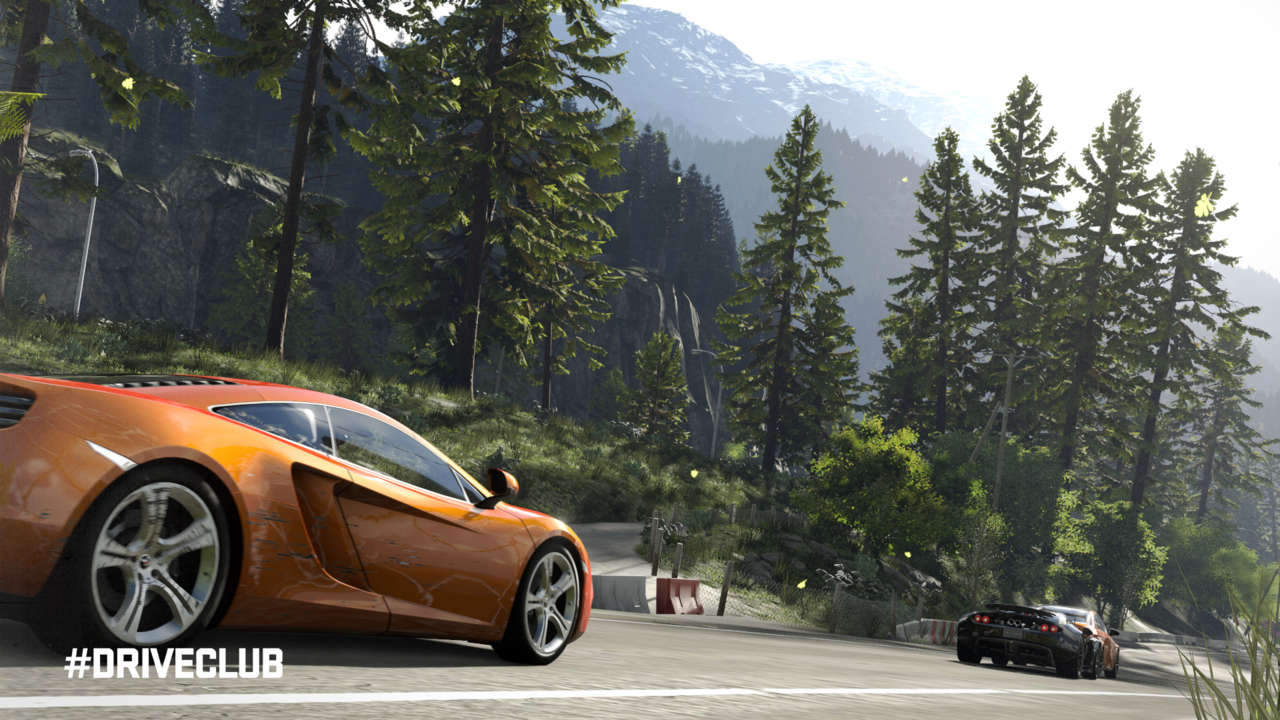Amid the celebratory success that the PlayStation 4 is currently enjoying lies a dark current beneath the surface. Turnover has changed the makeup at many of Sony's internal studios. In a short period of time, we've seen an entire team cut loose from Sony Santa Monica, creative directors from Sucker Punch and Evolution Studios moving on, and the head of the Uncharted franchise leaving Naughty Dog. And now we can add one more to that growing list. Nate Wells, the lead artist of The Last of Us, is now designing the visuals at Giant Sparrow. It's easy to look at all of these departures from Sony's studios and worry that the quality and quantity of their games will suffer. Yet, even with so many high-profile people taking part in other ventures, I'm not too scared about the future of Sony's first-party teams.
And for his part, President of Worldwide Studios Shuhei Yoshida doesn't believe these departures signify a deeper problem. "It's a part of the industry, a part of the process. If we finish all the games we start making, I don't think the industry would be able to survive. Publishers take risks in starting projects that may or may not work, creating genres or game mechanics that may never have existed before, so we expect some part of our projects to fail." It's strange to think of all the interesting situations happening behind the scenes, that we'll never hear anything about, but that's just how things work. Companies choose what they want to make public. Could all of these shifts happening at the same time just be coincidental? Yoshida believes so. "In this case, it just happened that some of them happened around the same time. Unfortunately, when a project's cancellation involves many employees, sometimes you have to shrink the studio a bit. Otherwise it's just not healthy to have lots of people waiting for new work to do, a new job."
Firearms Expert Reacts to Ghost Recon Breakpoint's Guns Xbox Studio Closures Are Confusing | Spot On Gray Zone Warfare | Community Briefing Trailer #1 Senua's Saga: Hellblade II - Senua's Psychosis Feature Trailer Squirrel With A Gun - Official Announcement Gameplay Trailer Night Slashers: Remake || Official Christopher Smith Character Gameplay Trailer GS News Update: New Fortnite Battle Pass Detailed GS News Update: Star Wars: Battlefront 2 Underperforms, Microtransactions Coming Back GS News Update: Metal Gear Survive Requires Constant Internet Connection, Has Microtransactions Battlefield: Bad Company 3 Rumors Surface - GS News Roundup Red Dead Redemption 2 Mission Discovered In GTA Online?! - GS News Roundup PUBG Xbox One Performance Issues - GS News Roundup
Please enter your date of birth to view this video
By clicking 'enter', you agree to GameSpot's
Terms of Use and Privacy Policy
Though you could brush off Yoshida's words as mere marketing speak, the history of Sony shows that we shouldn't worry just yet. When the original PlayStation made fools out of industry veterans Sega and Nintendo two decades ago, it was on the backs of stellar marketing and exciting third-party franchises. Resident Evil was born on Sony's first console, Final Fantasy entered the mainstream, and Tekken redefined fighting. While a bevy of revolutionary experiences were calling attention away from the Nintendo 64 (with its miniscule library) and the Saturn (with its old-school sensibilities), Sony was working to establishing an identity of its own so it wouldn't be so reliant on outside companies. I have fond memories of pulling off crazy racing moves in Jet Moto and toppling the Eiffel Tower in Twisted Metal 2, but during those early days of development, Sony was more likely to churn out a mascot dud like Blasto than anything that would remain relevant years down the road.
During those early days of development, Sony was more likely to churn out a mascot dud like Blasto than anything that would remain relevant years down the road.
As someone who grew up immersed in all things Nintendo, I took great pleasure in laughing at Sony's meager efforts to establish itself as a legitimate video game company. After all, relying on outside companies to prop up your console is a dangerous prospect that can disappear all too quickly if you're not careful. Just look at what happened to Nintendo. Third parties bailed after the Super NES was retired, but Nintendo has remained viable because its internal teams are so talented. Even the Wii U has a solid lineup of games, despite almost no one other than Nintendo releasing games for it. With Sony's first gaming foray, it didn't have enough inside teams to pick up the slack from fickle third parties, and so the dynasty it had created threatened to crumble if it somehow stumbled in the future.

Of course, it takes more than one console cycle to grow from newly planted seed to thriving tree, so we didn't see the fruits of Sony's labor until the PlayStation 2. Finally, we had a system that contained tons of interesting third-party adventures alongside home-grown efforts. We explored open worlds in both Grand Theft Auto III and Shadow of the Colossus, honed our espionage skills in Metal Gear Solid 2: Sons of Liberty and Sly Cooper and the Thievius Raccoonus, and practiced our marksmanship in TimeSplitters and SOCOM: U.S. Navy SEALs. Sony's team had grown considerably after a rocky start, finally offering satisfying complements to the best efforts of its independent partners. And when things turned south toward the beginning of the last generation, Sony stayed afloat in large part because of its outstanding internal teams. As Uncharted: Drake's Fortune, God of War III, and Killzone 2 made it difficult to resist buying a PlayStation 3, eventually Sony overcame its early problems.
Such dramatic growth has accomplished the unthinkable: Sony's internal teams have now matched Nintendo's own efforts. What seemed like a sacrilegious fever dream so many years ago has now come to fruition, and it's that rise from nothing that has kept me optimistic as each news story hits about another departure. Jumping to dire conclusions is something that I've been guilty of in the past, and it's easy to do considering how many people are bailing. It's impossible to not wonder what the reality of Sony's situation is. Are things murkier than they appear from the outside? Are there management issues? Monetary shortcomings? Is this the first sign that doom is coming? Should I worry about Sony selling its share of Square Enix? Or its inability (or unwillingness) to secure third-party exclusives?
The questions pile on top of one another, creating a mountain of unease. And I can't just brush off these events as if they don't matter. After all, there's no positive way to spin the dismissal of an entire team at Sony Santa Monica, especially when the creative director of God of War III is one of the people no longer at that studio. Although the individuals in question may be moving to a better situation (Giant Sparrow doesn't have the name recognition of Naughty Dog, but it could be the next thatgamecompany), losing talent can't be good for Sony's internal teams. So it's unlikely this transformation is good for fans of the PlayStation 4 or Vita in the short term, or for any of the people who didn't have a choice in the matter.

Still, I have not become mired in the depressing reality of these changes. I have no idea how Driveclub will turn out, or if Uncharted 4 will carry the torch of its incredible predecessors, but we shouldn't lose sight of the forest while we stare at the trees before us. These changes will have an effect, and could lead to fewer games being released or maybe even lower quality than we're used to. There may be bumps in the road. I wouldn't be surprised if Sony doesn't have many huge games coming out this year, at least not from its own studios. But it's the long term that matters. And history has shown that Sony cares enough about its first-party efforts to make sure things don't turn to dust.
Plus, Sony has done a great job in the last two decades of building a large stable of quality teams. There are so many studios working on so many different games, that changes at a couple places shouldn't destroy what Sony has built up. Furthermore, we've seen even more dramatic shifts in the past, and things have still moved along smoothly. Remember that Sony recently closed studios such as Zipper Interactive and Lightbox Interactive, and though their absences have been felt, the flow of excellent games hasn't abated. The industry continually transforms, and as trends emerge and technology improves, we often see unexpected studios deliver unbelievable games. I certainly wouldn't have expected The Last of Us after playing Naughty Dog's Way of the Warrior or Crash Bandicoot, so who knows which team will suddenly make a game that blows us away.

There is also the independent situation that has been brewing for the last few years. While Sony's own teams have been fluctuating a bit of late, that murkiness has been brightened somewhat by the bevy of indie studios that Sony has partnered with. It's part of the change that has been coursing through this industry. Making games is expensive, and when you're talking about the biggest games that populate retail shelves, it takes tons of time and manpower to bring those to fruition. And Sony has done a great job of late in ensuring a steady flow of releases even when not many are coming from internal teams. Similar to its strategy in the PlayStation era, courting indies provides a constant flow of games from the outside, providing entertainment while the first-party teams are reloading.
Things are not all bright for Sony right now. Though it made waves with the PlayStation 4, there is some instability in its first-party studios. People losing their jobs is never good, and it's hard to not wonder why others are choosing to join outside developers. But it's too early to assume the worst. We'll see a hint of the near future come E3, and as we move into next year, it should become clear how much impact all of this movement had. But until more information comes, relax and enjoy what's already out there. Sony's history is too bright to assume the worst of this questionable situation.